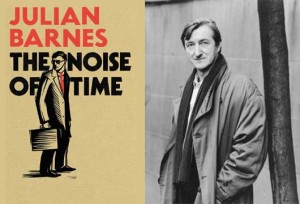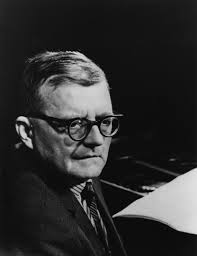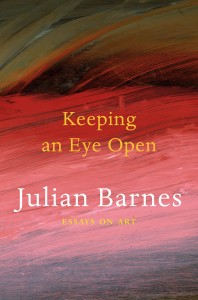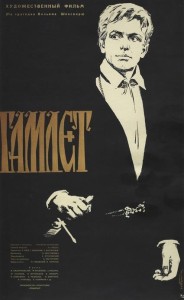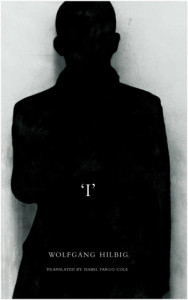‘It isn’t autobiography, but it’s a daughter’s book in every way’: Madeleine Thien
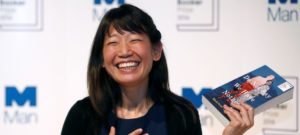 (My interview with award-winning author Madeleine Thien was published in Scroll on 29 Oct 2016. Here is the original url: http://scroll.in/article/819960/it-isnt-autobiography-but-its-a-daughters-book-in-every-way-madeleine-thien . I have c&p the interview below. )
(My interview with award-winning author Madeleine Thien was published in Scroll on 29 Oct 2016. Here is the original url: http://scroll.in/article/819960/it-isnt-autobiography-but-its-a-daughters-book-in-every-way-madeleine-thien . I have c&p the interview below. )
‘It isn’t autobiography, but it’s a daughter’s book in every way’: Madeleine Thien
The author talks about her extraordinary novel ‘Do Not Say We Have Nothing’.
Madeleine Thien is the author of the story collection, Simple Recipes, and three novels, including Dogs at the Perimeter, which was awarded the Frankfurt Book Fair’s 2015 Liberaturpreis. It is, of course, her most recent novel, Do Not Say We Have Nothing, which was shortlisted for the Man Booker Prize. The youngest daughter of Malaysian-Chinese immigrants to Canada, Thien lives in Montreal. Excerpts from an email interview with Madeline Thien, conducted before the prize-winner was announced:
Please tell me more about the title – Do Not Say We Have Nothing?
The title comes from a line of music – the Chinese translation of a Russian translation of Eugène Pottier’s original French lyrics of The Internationale – which has resonated across 20th century China. The French line, “Nous ne sommes rien, soyons tout” (“We are nothing, let us be all”) became 不要说我们一无所有 (Do not say that we have nothing). The translation is by Qu Qiubai, a Communist Party leader, tragically executed in 1935, who is said to have sung The Internationale as he walked to his death. The anthem was also sung by the students in the early morning hours of June 4, 1989, as they left Tiananmen Square while the massacre was still unfolding.
Of all the composers why did you choose Glenn Gould’s recording of Bach almost like a chorus in your novel? How does Beethoven fit into the spectrum of Soviet composers you choose to mention – Prokofiev, Tchaikovsky and Shostakovich?
Between the composer, Sparrow, who is the conscience of the novel, and me, this was the piece of music that anchored us. It’s a set of 30 variations and canons, all derived from a very simple theme in the opening aria, found not in the melody but in the bass line; and the entire piece begins and ends with the same aria, though by the time we arrive at the end, we have journeyed across timescapes. The Goldberg Variations are just one example of Bach’s extraordinary compositions which are built from strict form and structure, and yet somehow give rise to astonishing freedom, individuality, polyphony and range. In other words, they break you open and remake you.
The musicians in Do Not Say would have had ready access to the works of the Russian composers, as well as to Russian musicians and teachers, up until the Sino-Soviet split in 1960, so they would be foundational to the life and work of Sparrow. Beethoven’s renown in China is a separate story, and a fascinating trajectory, recently told by Sheila Melvin and Jindong Cai in their new book, Beethoven in China.
How long as the book been a part of you? How many drafts did it take to write?
Once I began writing, it took about five years, and probably 8-10 drafts, and that is quite little for me. The first third was, in some ways, the most challenging because of the foundation that needed to be created, and the strength (physical, artistic) to set a relatively large object into motion. I think the book has been part of me since childhood.
Somehow I had an inkling this was the case. The manner in which the story has been written and details mentioned suggested you had been thinking about it a lot, probably well before the book began its life as a manuscript. Also there was a sense that the book was like a witnessing. As if it was crucial for you to share your experiences in this manner with the younger generations who are probably not as well-informed about the transformations wrought to Chinese society.
In a way, I think of it not necessarily as a book written for younger generations, but as a book written to the older one. It isn’t an autobiographical novel, but it is a daughter’s book in every way. It tries to say that the daughter has grown older, and in living her life, with all its joys, heartbreaks, betrayals, wonder, has finally come to understand something of what her parents lived.
How much research and fact-checking did it involve?
A great deal, about history and music and mathematics and language, and about simply paying attention to life and living. But very few things, perhaps nothing, ever feel to me like pure research. Thinking about the world of the novel was my life, and so reading, asking questions, travelling, wandering, listening to music, and just being in China, was my life. It was expansive and challenging and also joyful, and of course, at times, it was devastating. The middle of the book, which slows down into the summer of 1966, was very difficult for me, and I had to stop writing for a few months after those sections were written. I had to come back to myself so that I could eventually return to the characters.
The pain you describe in the story and then acknowledge having found it tough to contend with makes absolute sense. Writing those words could not have been easy. Even as a reader I had to keep pausing as it was devastating to read the descriptions.
I’m so glad to hear that you paused, Jaya. Sometimes what the writer can’t work into the text are these spaces, pauses and rests, the moments that haven’t quite run their course even though the text had reached the end of the line.
Parts of the story ring true. Did you record oral histories and testimonies for this or referred to some archival material?
No, I didn’t record interviews. I had a lot of conversations, but they ranged from hanging out with composers to unexpected encounters on the street to visiting the small memorial at the Shanghai Conservatory of Music, wandering in and out of practise rooms, going overnight into the desert in Gansu province, visiting my grandfather’s village in southern China, or just returning, year after year, to Tiananmen Square and Chang’an Avenue, and trying to absorb all the details. I read widely (the unrelated books are sometimes as important as the related ones) and travelled widely, and I just took the time I needed, as slow as it sometimes seemed. Being in China was humbling, provocative, and life changing.
Did you often make trips to China while working on this manuscript?
Yes, many trips, some longer (several months) and some brief (a couple of weeks). I was fortunate in that, for six years, I was coming to Hong Kong once or twice a year to teach a week-long workshop, and so could regularly add time in China. I was also writer-in-residence at Nanyang Technological University in Singapore for one semester, which allowed me to make frequent trips to China.
Do you think this book will be sold in China?
Yes. Not in the present moment, one day in the future that we can’t yet foresee.
I recommended your book to a couple of friends currently in China and Japan and both replied, “Sounds fascinating but we are not very sure if it will be available.”
I hope a translation will be possible sooner than we think. The untranslated book (UK edition) is available in Hong Kong and Japan, but not China.
How do you feel having written it?
As if I have been given something by the book itself. It allowed me to live in ways I could never have imagined on my own.
Why is there no genealogy tree or a timeline of events in the novel? Why are the annotations not starred?
There will be a family tree in the US edition of the novel, but it was never something that came up for the Canadian and UK editions. As a work of literature, a reader comes to know the characters or, to put it another ways, comes to live in the world the characters know. As the pages turn, the circle of that world expands. The annotations are not starred because, for me, the endnotes are a part of the literary work itself. Do Not Say is a book of books, and the endnotes continue the story. They are all open doorways within the novel, because no book exists in solitude.
Interesting that the US edition will have a genealogy. How did that decision come about?
The US publisher requested one. They did a beautiful job, and the design reminds me of notes on a stave.
Is this pure literary fiction or is it a cross between memoir and historical fiction? Why did you choose a writing style that sometimes seems to lapse into a meticulous historical account rather than fiction?
This is literature, in the sense that the novel is a relatively young form, and its borders are still contested. The world exists in storytelling just as storytelling exists in the world; I wouldn’t know how to extricate one from the other. For me, and perhaps this is an artistic failing of mine, I don’t think of it as meticulously historical. We are always with the characters, in their diction and register, in their conflict between public expression (Zhuli’s arguments with herself as she tries to align her thoughts with Chairman Mao’s discourse on the dangers of art for art’s sake) and private expression – in other words, between public and private languages, and public and private selves. All I can say with any confidence is that this is not memoir, as it has almost no overlap with my own family’s history; but I do think of it as a novel of intimacy.
After sending you this question I read that you had categorically denied this is a work of historical fiction. So my apologies. But I do love your description of it as a “novel of intimacy”.
Please don’t worry at all! I’m not sure I’m super categorical about it, but have lingering questions about what we mean by a work of historical fiction, how far back is the historical, etc. I don’t feel that we would call a work partially set in 1960s New York a work of historical fiction.
Madeleine Thien Do Not Say We Have Nothing Penguin, 2016. Pb. pp.
3 November 2016

